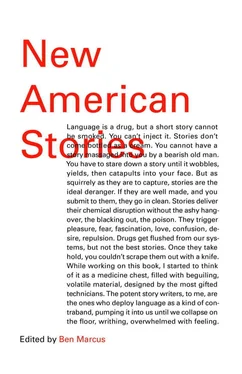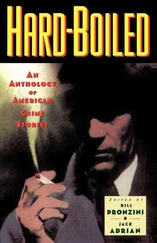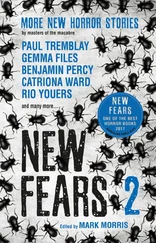You, my brother-to-be, will have heard the story of how our mother’s mother died of cancer when our mother was ten and her father was put in a mental hospital. A boring story: when our mother was ten, her mother died, her dad went in the bin, and our mother and her sister were sent to the neighbors’. By the time my mother met Haven, she would have been living for two years with “Auntie Frances”—Frances who had four of her own girls and worked as a nurse and whom my mother has hardly spoken of since, not to me, not to Leala. She said, for example, of her childhood, “I spent most of my time at my friend Haven’s house,” not, “When I lived with Auntie Frances, I often spent the afternoon at my friend Haven’s.” There was no Frances.
She once said, “Haven’s family didn’t have much money, but their house was a fun place to be. It was always lively. They were always doing some project or other.”
A statement full of clichés and generalities.
“It’s because of Haven that I love crafts,” my mother once told us. She was helping us make Christmas ornaments with her sewing machine. My sister and I designed the ornaments from old panty hose, which we cut with scissors into the shape of old ladies and stuffed with cotton; our mother sewed together what we made. She had gotten out the sewing machine for this.
“Haven was a very talented painter,” she said. And Haven could sew, she even made her own clothes, beautiful clothes, as good as the ones in the stores, and knit scarves. Haven did pottery. Haven was very talented.
We thought our mother was talented. On occasion she would draw us a picture, if we begged — say, of a bunny rabbit — and her pictures were always better than ours. But more than that: her rabbits seemed about to leap.
“I’m not talented at all,” our mother said. “I’m not good. You should see the things my friend Haven used to make.” So we knew very little of Haven, who was now coming to visit, except that Haven was our mother’s bosom buddy.
“We were inseparable,” our mother said. “The mean girls at school used to say, ‘Hey, what’s wrong with you two, are you lesbians?’ ”
Eventually, we learned, Haven got a car, and she gave my mother rides to high school so she didn’t have to walk two miles and take three buses; and when my mother turned sixteen and her auntie Frances finally said, “There is no room for you here. I’m sorry, but I’ve housed you this long. I have my own daughters and expenses — I’ve got your younger sister to take care of too, now, and that’s all I can manage. You’re sixteen, find a place, ask a friend if you can live with them,” my mother knew immediately that she would ask Haven, and she did, and Haven threw her arms around my mother’s sixteen-year-old body, horsey, I guess, fit but muscular, our mother didn’t play sports but she walked a lot, she was only four feet eleven inches tall, and dark-eyed, tan, with that wild black hair, and Haven said, “That’s a fabulous idea,” and they planned girlishly how to persuade Haven’s mother to take our mother into the house, and though there was no money and no room, somehow they did.
Everyone worked. Haven’s mother worked as a secretary full-time and then she came home and made dinner; Haven’s older sisters worked after school (her brother was already in college); Haven worked at a clothing boutique most weeknights; my mother bused tables at a lobster shack. The house was a house of girls and chaos and my mother lived in Haven’s room with Haven.
“I always knew I could ask Haven and she’d say yes,” our mother told us. “She was that kind of friend.”
“And she was very beautiful, Haven was, and many boys liked her, but Haven was tough and didn’t wear dresses, she wore jeans and smoked cigarettes and ignored them all.”
And then our mother went to college at the University of Vermont, and Haven went to college, too, but somewhere else, out of state, a liberal-arts college where she’d won a fellowship, and our mother met our father, and Haven married her high school sweetheart and moved with him to upstate New York and our mother never — or almost never — saw Haven again.
In her presentation to us of this matter, our mother and Haven were exactly as good friends now as they always had been. They exchanged Christmas cards each year, and about the many cards we received — that got taped, forming a decorative frame, to the door of our hall — our mother would not remark, except for the one from Haven. When it came, she would say, “I got a card from my friend Haven!” and we would have to come look at the card, and then she would tape it up.
“Oh, Haven!” our father would say, if he was home and had been made to view the card. “How’s she doing? Hope she’s well!” But he had met her only once.
Sometimes in a blue moon, our mother would say, “I got a letter from Haven, my friend Haven,” and she’d be in an odd mood the rest of the day. She’d think of a craft project for us to do, Leala and me, and take a nap on the couch in the living room, with a heavy afghan pulled up to her neck.
“Haven loved Snickers bars,” she once said. At any rate, although they hadn’t seen each other in ten years, my mother still spoke as if she and Haven were as close as ever. For example, if Leala referred to her best friend, Juliana, who sat next to her in second grade, my mother would respond, “ My best friend is Haven.”
All this — the existence of the apocryphal Haven — was the reason that my middle name was Haven, and that “Haven,” whoever she was, was Leala’s godmother — twice gifts had arrived on Leala’s birthday, from “Haven”—it was the reason our mother now chased me through the halls yelling, “Come here right now and let me spank you, don’t you run from me”; she could not bear for Haven to arrive and see that her two daughters — Leala, skinny, big gray eyes, black hair, and myself — had uncombed hair.
—
Our mother lived alone most of the time. Our father often did six-day stints “on alert” at Pease Air National Guard Base, flew refuelers for bombers in the Falkland Islands, visited bases in Japan and Guam. Our mother got fat and became depressed. She protests when I (Leala will not) claim (or used to claim) that she was unhappy. “I’m very happy!” she says. “I was happy! I love my life!” But Leala and I remember days when she washed and ironed every curtain in the house. “The curtains were terrible,” she told us, “so much dust.” Every two weeks she washed, waxed, and buffed the wood floors of the kitchen, the dining room, and the lower halls inch by inch on her hands and knees. “Water is wood’s worst enemy,” she told us. “Wood hates water.” She took an hour-long nap each day on the couch with the afghan pulled over her and said, “You girls play outside.” Every week she made double batches of chocolate-chip cookies, and once they were laid out on paper towels on the kitchen counters we asked, “Aren’t you going to have one?” and she’d say, “No, I’m on a diet,” and later eat three.
But that morning she rose at six a.m., weeded the strawberry garden, dusted the house, and drove us to Shop ’n Save and bought a roaster, then drove to Dairy Queen and bought an ice-cream cake, even though we only had thirty dollars to last us until the end of the month, because our mother had remembered that Haven liked ice cream. Now our mother re-dusted the baseboards while Leala and I danced in the den and peered out the windows, squinting into the sunlight at the white disappearing end of our dirt road in anticipation of the car that would be Haven’s.
This story is boring, I apologize. Leala was her first child, which is what I want to tell you, and responsible for everything. It was to Leala that our mother said, “I chose to stay home with you and be a mother to you, because I wanted you to feel you had a mother. And I don’t regret my decision. But if I hadn’t had you, I could have had a career.
Читать дальше










![Женя Джентбаев - neo futura [stories]](/books/692472/zhenya-dzhentbaev-neo-futura-stories-thumb.webp)

